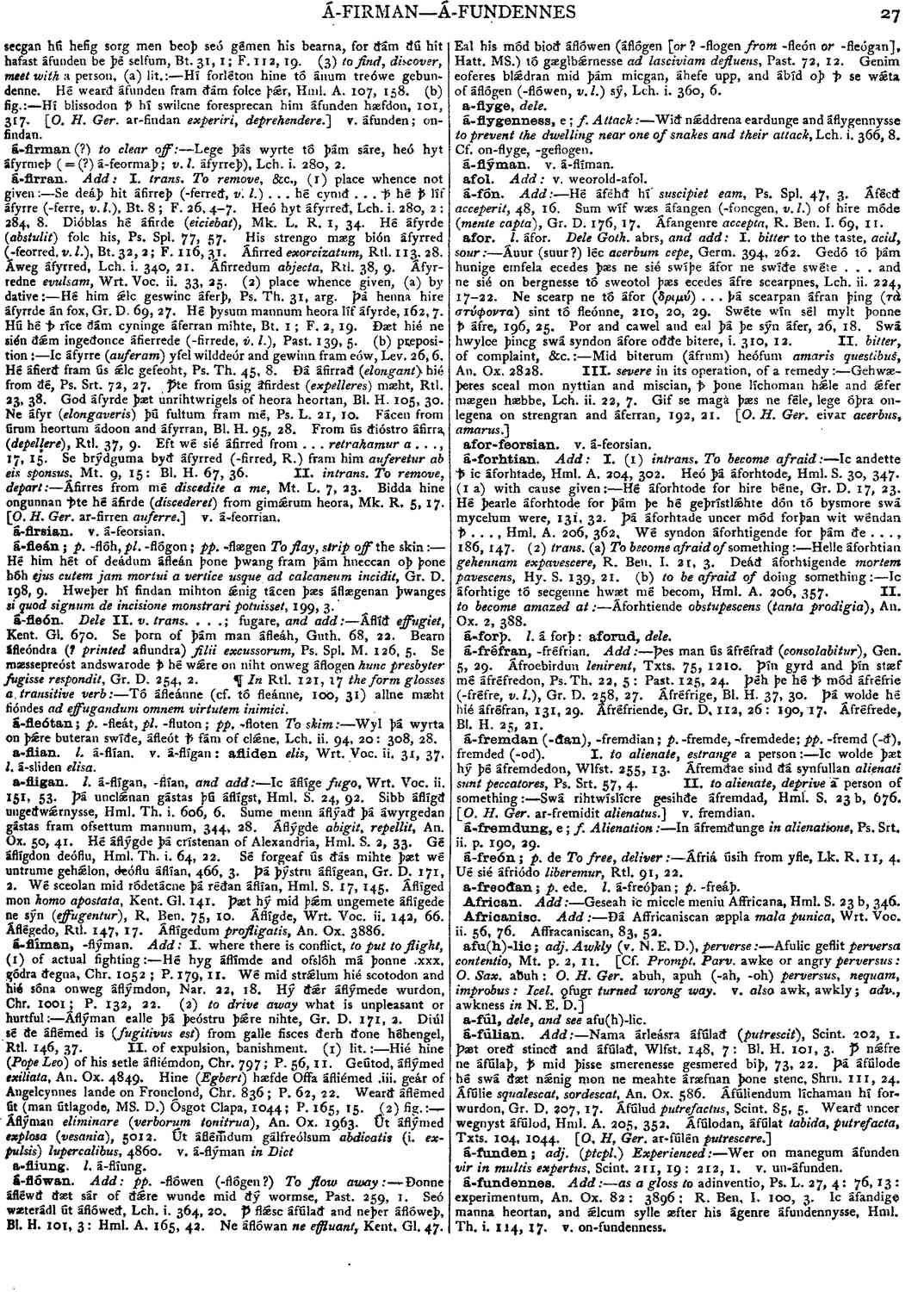afor
-
Áuur (suur?) léc
acerbum cepe
,- Germ. 394, 262.
- Gedó tó þám hunige emfela ecedes þæs ne sié swíþe áfor ne swíðe swéte . . . and ne sié on bergnesse tó sweotol þæs ecedes áfre scearpnes. Lch. ii. 224, 17-22.
-
Ne scearp ne tó áfor (δριμὐ) . . . þá scearpan áfran þing (τἀ στφοντὐ) sint tó fleónne,
- 210, 20, 29.
-
Swéte wín sél mylt þonne ꝥ áfre,
- 196, 25.
-
Por and cawel and eal þá þe sýn áfer,
- 26, 18.
- Swá hwylce þincg swá syndon áfore oððe bitere, i. 310, 12.
-
Mid biterum (áfrum) heófum
amaris questibus
,- An. Ox. 2828.
- Gehwæ-þeres sceal mon nyttian and miscian, ꝥ þone líchoman hǽle and ǽfer mægen hæbbe. Lch. ii. 22, 7.
-
Gif se maga þæs ne féle, lege óþra on-legena on strengran and áferran,
- 192, 21.
Bosworth, Joseph. “afor.” In An Anglo-Saxon Dictionary Online, edited by Thomas Northcote Toller, Christ Sean, and Ondřej Tichy. Prague: Faculty of Arts, Charles University, 2014. https://bosworthtoller.com/38215.
Checked: 0